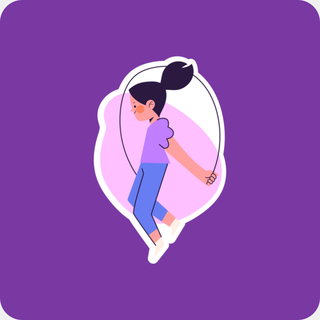Aditi always had a keen interest in how people perceive sound. From watching her grandmother struggle with hearing loss to being fascinated by how cochlear implants work, she wanted to make a difference. But how could she turn this passion into a career? Could she truly help people regain the joy of hearing? Let’s explore the world of audiology!
What Does an Audiologist Do?
An audiologist is a healthcare professional specializing in diagnosing, treating, and managing hearing and balance disorders. They work with people of all ages, from newborns to the elderly, helping them overcome hearing impairments and balance issues to improve their quality of life.
Areas of Specialization:
-
Hearing Assessment & Diagnosis – Conducting hearing tests to determine hearing loss levels and causes.
-
Hearing Aid Fitting & Assistive Technology – Selecting and programming hearing aids or cochlear implants for patients.
-
Balance Disorders & Vestibular Therapy – Diagnosing and treating balance disorders related to inner ear problems.
-
Tinnitus Management – Helping patients cope with persistent ringing or buzzing in the ears.
-
Pediatric Audiology – Working with infants and children to diagnose congenital hearing impairments.
-
Hearing Conservation & Protection – Providing education on noise-induced hearing loss and protective measures for workers in high-noise environments.
Audiologists use advanced technology, such as audiometers, hearing aids, and cochlear implants, to diagnose and treat patients. They collaborate with ENT specialists, speech therapists, and other healthcare professionals to provide holistic care.
Job Market Trends for Audiologists
Current Trends:
The demand for audiologists is growing due to increased awareness of hearing health and advancements in hearing aid technology. Some of the key trends include:
-
Rise in Age-Related Hearing Loss – With an aging population, the need for audiologists is expanding rapidly.
-
Advancements in Hearing Technology – AI-driven hearing aids, wireless connectivity, and cochlear implants are revolutionizing treatment.
-
Increased Focus on Pediatric Audiology – Early diagnosis of hearing disorders in children is gaining importance, leading to more specialized roles.
-
Tele-Audiology & Remote Services – Virtual hearing consultations and remote device adjustments are becoming more common.
-
Occupational Hearing Conservation – Industries with high noise exposure are investing in audiology services for worker safety.
Future Job Market Trends:
Looking ahead, the demand for audiologists is expected to grow with trends such as:
-
Regenerative Medicine & Hearing Restoration – Stem cell research and gene therapy could lead to groundbreaking treatments for hearing loss.
-
AI-Powered Hearing Aids – Smarter hearing devices with real-time noise filtering and speech enhancement.
-
Greater Awareness & Accessibility – More government initiatives promoting hearing health and accessibility for the hearing impaired.
-
Expanded Telehealth Services – Remote audiology assessments and AI-driven diagnostics.
Top Colleges for Audiology
Top Colleges in India:
-
All India Institute of Speech and Hearing (AIISH), Mysuru
-
Post Graduate Institute of Medical Education and Research (PGIMER), Chandigarh
-
Ali Yavar Jung National Institute of Speech and Hearing Disabilities (AYJNISHD), Mumbai
-
Manipal Academy of Higher Education, Karnataka
-
Sri Ramachandra Institute of Higher Education and Research, Tamil Nadu
-
Bharati Vidyapeeth Deemed University, Pune
-
University of Mysore, Karnataka
-
Osmania University, Hyderabad
Top Colleges Abroad:
-
University of Pittsburgh (USA)
-
Vanderbilt University (USA)
-
University of Manchester (UK)
-
University College London (UK)
-
University of Toronto (Canada)
-
Macquarie University (Australia)
-
Karolinska Institute (Sweden)
-
University of Melbourne (Australia)
Where Does Your Journey Start?
To become an audiologist, students must build a strong foundation in science, particularly biology, physics, and psychology. Practical exposure through internships and clinical practice is essential.
What Should You Study to Become an Audiologist?
-
Bachelor’s Degree – B.Sc. in Audiology, Speech-Language Pathology, or a related field.
-
Master’s Degree (Required for Clinical Practice) – M.Sc. in Audiology or Speech and Hearing.
-
Doctorate (Optional for Research & Advanced Clinical Practice) – Ph.D. or Au.D. (Doctor of Audiology).
Certifications & Licenses:
-
Rehabilitation Council of India (RCI) Certification (For practicing in India)
-
Certificate of Clinical Competence in Audiology (CCC-A) (For practice in the USA)
-
Health and Care Professions Council (HCPC) Registration (For the UK)
-
Australian Audiology Accreditation
What Are the Associated Entrance Exams?
-
NEET-UG (For some medical audiology programs in India)
-
AIISH Entrance Exam (All India Institute of Speech and Hearing)
-
RCI-Approved College Entrance Tests
-
GRE (For international programs in the USA)
What is the Growth Trajectory Like in the Audiology Field?
Audiologists enjoy steady career progression with opportunities in hospitals, private clinics, research institutions, and hearing aid companies.
Career Levels:
-
Audiology Assistant (0-2 years) – Assisting in hearing tests, device fitting, and patient assessments.
-
Clinical Audiologist (3-5 years) – Diagnosing hearing disorders, prescribing hearing aids, and therapy.
-
Senior Audiologist (5-10 years) – Specializing in pediatric audiology, cochlear implants, or balance disorders.
-
Audiology Consultant/Researcher (10+ years) – Leading audiology clinics, research projects, and device development.
What is the Expected Salary in This Field?
-
India: ₹4-6 lakh per annum (entry-level), ₹7-15 lakh per annum (experienced).
-
USA: $60,000 - $100,000 per year.
-
UK: £35,000 - £60,000 per year.
-
Australia: AUD 70,000 - AUD 120,000 per year.
Who Are the Top Role Models in This Field?
Dr. Raymond Carhart – The Father of Audiology
Dr. Raymond Carhart is often credited with founding the field of audiology. His work in rehabilitative audiology during World War II laid the foundation for modern hearing aid fittings and auditory rehabilitation programs. Carhart’s research helped shape the protocols used to assess and treat hearing loss, and his development of the Carhart Notch is still referenced in audiometric evaluations today.
Dr. Marion Downs – A Pioneer in Pediatric Audiology
Dr. Marion Downs was a trailblazer in early hearing detection and intervention. She was instrumental in implementing universal newborn hearing screening programs, which have since become a standard practice worldwide. Her advocacy and research ensured that congenital hearing loss could be diagnosed at birth, allowing for early intervention and better language development outcomes in children.
Dr. Mark Ross – Advocate for Hearing Rehabilitation
Dr. Mark Ross dedicated his career to improving assistive listening devices and hearing rehabilitation for individuals with hearing impairments. He emphasized the importance of auditory training and environmental modifications to improve the quality of life for hearing-impaired individuals. His work contributed to the development of advanced hearing aids and FM systems that are widely used today.
Dr. James Jerger – Expert in Auditory Processing Disorders
Dr. James Jerger made groundbreaking contributions to diagnostic audiology and auditory processing disorders (APD). He developed several auditory tests that are still used to assess patients with central auditory processing difficulties. His research on age-related hearing loss has significantly influenced audiology practices in geriatric care.
Dr. Patricia Kricos – Advocate for Aging Populations
Dr. Patricia Kricos was known for her extensive research on auditory rehabilitation in older adults. She focused on understanding how hearing loss affects aging populations and worked on improving communication strategies and hearing aid technologies for seniors. Her work continues to guide audiologists in geriatric audiology.
Why Choose a Career in Audiology?
Choosing audiology as a career offers a unique combination of healthcare, technology, and direct patient interaction. Here’s why this field is an excellent choice for aspiring professionals:
1. High Demand & Job Security
The increasing prevalence of hearing loss, particularly among aging populations, ensures a steady demand for audiologists. According to the World Health Organization (WHO), over 1.5 billion people worldwide experience some form of hearing loss, with this number expected to rise. Governments and healthcare institutions are actively investing in hearing care services, making audiology a stable and growing profession.
2. Opportunity to Improve Lives
Hearing is fundamental to communication and quality of life. Audiologists have the chance to make a profound impact by helping individuals—whether newborns, children, adults, or seniors—overcome hearing and balance challenges. From fitting hearing aids to providing auditory training, audiologists help restore the joy of sound to those who need it most.
3. Innovative & Evolving Field
Audiology is a rapidly advancing field with continuous developments in technology and treatment methods. Modern hearing aids feature AI-powered noise cancellation, Bluetooth connectivity, and even real-time translation. Cochlear implants, regenerative therapies, and tele-audiology are revolutionizing patient care, making audiology a career at the forefront of innovation.
4. Diverse Work Environments
Audiologists are not limited to hospitals. They can work in various settings, including:
-
Private Clinics – Running independent audiology practices.
-
Hospitals & Medical Centers – Diagnosing and treating hearing disorders.
-
Schools & Educational Institutions – Assisting children with hearing impairments.
-
Research & Academia – Conducting studies to improve hearing treatments.
-
Hearing Aid & Tech Companies – Developing new assistive listening devices.
-
Industrial & Occupational Health – Preventing workplace-related hearing loss.
Final Thoughts: The Sound of a Rewarding Career
Becoming an audiologist is a fulfilling path for those passionate about healthcare and technology. Whether you're diagnosing hearing loss, fitting advanced hearing aids, or conducting research, audiologists play a critical role in enhancing people’s lives. If you’re fascinated by sound and its impact, this could be the perfect career for you!
Looking for career guidance?
Explore Fundaspring’s Career Guidance Collection for expert insights, courses, and mentorship opportunities!































